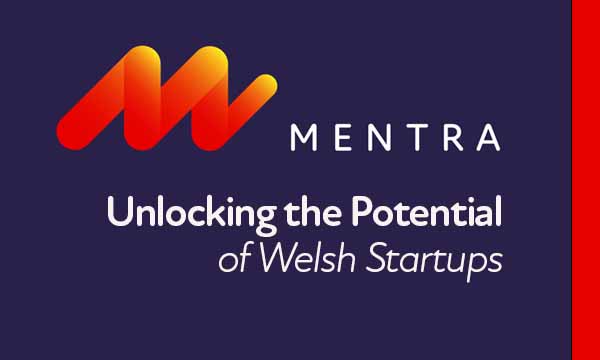 By Nick Gallagher
By Nick Gallagher
Executive
The global private equity landscape has undergone significant transformation since the onset of the pandemic, including a recalibration of sectoral focus to ensure portfolio resilience, renewed investor confidence, evolving due diligence processes, and navigation of numerous macroeconomic and geopolitical challenges including inflation, interest rate rises, supply chain issues and a tightening labour market.
Private equity dealmaking has reached record levels. Globally, 24,722 deals were announced in 2021 with a disclosed aggregate value of $1.2 trillion – more than double total deal values witnessed in 2020 across 17,618 transactions (S&P Global Market Intelligence). In the UK, private equity firms completed 781 takeovers targeting British businesses, the highest level since records began in 1980, with a combined deal value of $85 billion (Refinitiv).
Private equity investment activity is expected to continue its strong trajectory throughout 2022, having rebounded from an initial contraction in dealmaking in Q1 2020 as fund managers paused to consider the full, long-term impact of the pandemic on their portfolios and to reassess future investment strategies.
Below, the key drivers of investment activity are explored, along with the key considerations for SMEs exploring the private equity landscape.
Recalibration of sector focus
Private equity funds have sought to identify companies either active within or exposed to pandemic-resilient sub sectors, recognising the risk of future waves of Covid-19 and the permanent behavioural shifts resulting from the pandemic. Software & IT services, healthcare, business services and industrials sectors have witnessed heightened investor attention, M&A activity and valuations as a result.
Significant private equity-backed technology transactions included Thoma Bravo’s $10.1 billion acquisition of cybersecurity firm Proofpoint, the $14 billion acquisition of McAfee by a consortium of private equity investors led by Advent International and Permira, and the $17 billion acquisition of healthcare technology company Athenahealth by Bain Capital and Hellman & Friedman.
It is not only large-cap companies witnessing increased sector attention, as leading mid-market private equity funds follow suit, demonstrating substantial appetite to incorporate complimentary SMEs within their portfolios. Bolt-ons were the dominant path to value creation for sponsors in 2021, accounting for 65% of European buyouts, a new annual peak (PitchBook). Notable mid-market examples include Babble IT, backed by Graphite Capital and previously LDC, which completed its ninth acquisition in twelve months in October 2021 with the double acquisition of Halo Communications and Digital communication systems. In November 2021, Wavenet announced the largest deal in its history with the acquisition of Excell Group – the transaction was Wavenet’s third since its buy-out from Beech Tree by Macquarie Capital in May 2021.
Transactions sized between €100 million and €500 million were the main contributor to record deal values in Europe in 2021, having increased over 60% from 2020, whilst deals under €25 million contributed heavily to deal volume, increasing by over 20% to reach another annual high (PitchBook).
As investors gain additional confidence from the reopening of global economies and seek to capitalise on pent-up demand, opportunities may be witnessed in more distressed sectors such as high street retail & hospitality, travel and leisure, with business owners eager to crystalise value and reduce their exposure to future market volatility.
Evolving scope of due diligence
During the cautionary period at the onset of the pandemic, investors allocated more time and resource to due diligence processes, underpinned by reduced risk appetite and curtailed market confidence. Transaction timelines were further elongated by operational difficulties in adapting to remote working, virtual management meetings, site visits and negotiations.
We are now witnessing the reverse of this, as increased competition for reduced asset classes drives private equity houses to complete transactions within shorter timeframes, with remote due diligence becoming the norm and transaction processes expedited by the removal of travel and logistical issues – supported by digital transformation. Naturally, as further recovery from the pandemic is witnessed, prior norms such as in-person meetings and site visits will again become more frequent where preferred by stakeholders.
Sustainability of growth is a key consideration for investors to support valuations, providing confidence to financial acquirers that improved trading performance is maintainable. Companies addressing the long-term behavioural changes resulting from the pandemic, whilst demonstrating strong margins, visibility of income and recurring revenues have witnessed heightened investor attention and valuations.
ESG credentials are being increasingly examined as a component of due diligence exercises and investment appraisals, not just as a ‘box ticking’ exercise, but as a way of securing long term value enhancement. Employees working within a healthy ESG environment are typically more engaged and productive, whilst there are also cost benefits to be realised from having a stable workforce and greater employee retention and collaboration – particularly in sectors with growing skills gaps such as SITS and business services. The rise of ESG is being driven by social and investor pressures, tightening legislation and regulation placing an emphasis on employee satisfaction and compliance. ESG will continue to be an increasing concern in transaction due diligence. Notably, risks relating to illicit business practices, privacy and data security, and employee diversity policies are already being evaluated.
The macroeconomic factors influencing decision making
With global private equity dry powder accumulating to $1.3 trillion as at September 2021 (Preqin), historically low borrowing costs have supported record capital availability for private equity funds and stimulated appetite for leverage buy-out transactions. However, investors are mindful of rapid inflation being driven by the stimulus packages deployed by central banks and large-scale supply chain disruption. The Bank of England’s February 2022 Monetary Policy Report detailed that UK CPI inflation is expected to reach c.7.25% in April 2022. Inflationary pressures will likely create an increased sense of urgency to execute leveraged transactions before any further interest rate rises are implemented in response.
Supply chain issues, widening skills gaps and tightening labour markets are being examined with greater consideration, as well-prepared investors seek to overcome these challenges via acquisitions to bolster headcount, expertise and B2B relationships of their portfolio companies. As these macroeconomic factors become further exacerbated and geopolitical tensions continue to escalate, we may witness a temporary risk adverse environment delaying transaction activity in the immediate term, with investors stress-testing a range of transaction structures and scenarios to ensure downside risk is minimised.
The opportunity and considerations for SMEs exoploring the private equity landscape
SMEs are utilising private equity investment to augment growth plans, obtaining development capital to bolster existing operations, or securing sizeable M&A war chests to bolt-on complimentary companies to extend geographic reach, product/service provision and sectoral expertise.
The current private equity M&A environment presents a window of opportunity for shareholders to explore succession and investment strategies while transaction activity and heightened competitive tension can be leveraged to maximise value realisation.
Consideration should be given to what investors can contribute beyond capital. Cultural fit, approach and investment style should complement existing shareholders and management teams in order to support a long-term prosperous relationship. Exit strategy, time horizon and anticipated returns should also be aligned to ensure all parties are working towards the same outcome and maximum value is realised.
Investors’ sector experience will be essential to ensure comprehensive understanding of portfolio company operations and to generate appropriate commercial opportunities. A quality investment team will support this and can offer potential non-executive director candidates to strengthen the corporate strategy further.
Despite emerging headwinds, optimism surrounds the private equity market for 2022, leading dealmakers are well versed in overcoming such challenges, having adapted to the multiple waves of Covid-19 over the last 24 months. Appointing a trusted adviser can help proactive business owners navigate the intricacies of the private equity landscape, to identify the optimal investment partner, ensure preparedness for due diligence processes and negotiate terms on the company’s behalf to maximise value realisation.







